Once a year, the local co-op in Tallahassee, FL, organizes an Annual Farm Tour for consumers to acquire first hand experience getting to know local farmers and understanding how organic farming works. This year 36 farms in North Florida and South Georgia participated. The tour includes working goat and cow dairy farms, ranches, orchards, CSA gardens, and more.
New Leaf Market
New Leaf Market is a co-op that has been serving the community since 1974. A co-op is a cooperative in which the business is owned and operated by a group of individuals for their mutual benefit. The co-op recently expanded in 2008 and offers a little bit of everything to consumers ranging from produce, grass-fed meats, Florida seafood, beer and wine, health products, and to a deli chock full of delicious foods. New Lead has seven Cooperative Principles, which include items like Democratic Owner Control and the Concern for Community. When I made the choice to become informed about my food and switch to organic eating, New Leaf made my education and new food options a seamless transition. I am aware just how lucky I am to have such a fully stocked organic grocery from local farms and suppliers store so close to home.
Although I would love to visit each farm, it was simply not feasible in two days. I made a personal farm tour over the weekend which would feature Georgia farms on Saturday and Florida farms on Sunday. This post will feature the farms I visited in Georgia, which contributed to my picnic for my Project Food Blog Round 6 entry.
Sweet Grass Dairy
 |
| A beautiful sunrise at Sweet Grass Dairy in Thomasville, GA. |
All bright eyed and bushy tailed, I woke up early on Saturday morning (which shows my dedication to supporting local organic farms since family and friends all have horror stories over my unwillingness to wake up early) and headed north to Thomasville, GA. The first farm on my tour was Sweet Grass Dairy - a 140 acre goat farm and home to a world class cheesemaking facility.
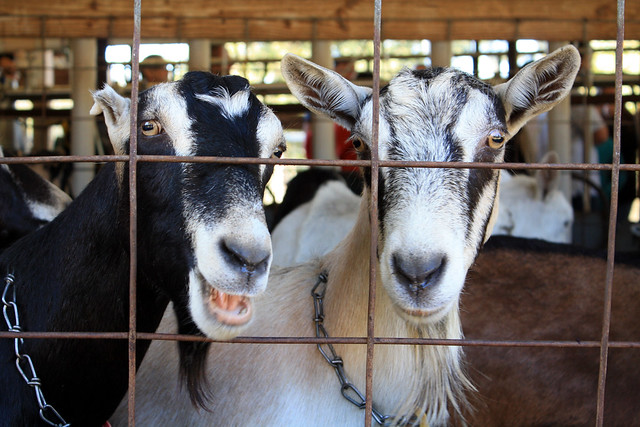 |
| Happy goats waiting in the milking area, otherwise they roam free behind fences on the farm. |
Miss K was the spokesperson for the tour and began straight away at 9am with explaining how their dairy functions on a daily basis. The farm currently has 200 female goats and 3 male goats (and a few grass-fed only cows in the back) that range in age from 8 months to 10 years old. The goats are milked daily, twice in the summer when they are producing more milk, and are not milked for two months in the winter, November and December, to mimic the natural cycle of goat reproduction. The goats are bred to have kids in the winter, between January and March, since summer babies do not do as well due to the heat. The goats are bottle fed for the first four months of their lives to help them become accustomed to humans, so they are all quite docile and sweet. The goats are sold annually, the males mainly, to prevent inbreeding and keep the herd healthy. They are moved around the farm to eat fresh grass, since the tips of the grass blades are the most nutritious. Goats are actually not good at knowing what they need to eat to remain healthy and can be rather picky, so the rumor that they can eat anything and be fine is a myth. Goats also have natural mineral deficiencies, so the farmers provide some grain mixed with molasses and minerals to keep the goats healthy, which is only 1/4 - 1/2 of their diet.
Miss K showed us some photos of the milking process and then walked us a few yards away to demonstrate the process firsthand.
The goats go into the milker twelve at a time. The milking process takes 9 minutes and works like clockwork. The first goat enters the stall and knows to walk to the end feeding tray - this is because when they reach into the tray, it lifts a door to their left in a domino effect to allow the other goats to eat from their tray and be milked.
The farmers spray the two goat teats with soap and water to clean them before hooking up the milking vacuum. The vacuum ensures all the milk is pumped to prevent any infection. After they goats are milked, an organic solution is sprayed on the teats to help them close to also prevent anything from infecting the goat before being released back into the pasture.
Miss K allowed us to see inside the sterile cheesemaking room, since the tubes in the milking area carries the goat milk into a holding tank. The farmers make cheese every day of the week, as the fresh milk is used within 48 hours. They make goat cheeses such as chevre and edan. They also make a wider variety of cheeses from the raw cow milk, such as Thomasville Tomme, gouda, and their Asher Blue placed 3rd in the World Cheese Awards in October 2009.
She explained that goat milk does not separate as easily as cow milk, since the molecules are smaller and naturally homogenized; the fat and liquid molecules remain suspended together and do not create a cream layer as seen in raw cow milk. The digestion of goat milk is also easier than cow milk, so some people that are intolerant of cow milk are able to enjoy goat milk. This is due to the presence of short- and medium-chain fatty acids which are easier to digest compared to long-chain fatty acids in cow milk.
The cheeses from Sweet Grass Dairy are artisan, meaning they are all made by hand. The milk is mixed slowly to allow separation to occur naturally, and the smaller the curds are cut, the drier the cheese. An interesting fact shared with us was how the extra beta carotene found in Georgia grass causes the cow milk to be extra yellow, whereas goat milk is always white no matter their diet. Miss K then let us know they also have some pigs on the farm which are fed the whey left over from the cheesemaking process. This helps the pigs have excellent marbling without being fatty. Lucky pigs.
We had a chance to taste the goat cheese, Chevre, and raw cow's cheese, Thomasville Tomme, at the end of the tour. The Tomme was a strong, firmer raw cow's milk with a buttery undertone that can be used in multiple applications. The Chevre was a soft, sweet goat's cheese that had a slight tangy bite and presence of the countryside from their natural diet. It was my favorite of the two.
One thing to note about Sweet Grass Dairy is they're not certified organic, although they use all organic practices. This is due to the use of antibiotics when an animal becomes ill. Thankfully, due to the clean, organic practices of the farm, this happens rarely. When an animal does become ill, the animal is separated from the herd and cared for, which may include the use of antibiotics to become well again. If the animal is given a clean bill of health, their milk is tested, called a SNAP Test, to ensure it does not contain any traces of antibiotics before being returned to the herd for regular milking procedures. On an organically certified farm, if an animal becomes ill, nature takes its course; therefore, the animal either gets well on its own or it passes away. Sweet Grass Dairy made the decision to forgo certification to tend to the animals if they become ill. I respect this decision because they are not only taking responsibility for the animal's well being, but that of their customers as well to ensure no one consumes any antibiotics in their products.
The serene farmland was a peaceful and happy place to experience, and a perfect start to my tour. Sweet Grass Dairy is actually celebrating their 10 year anniversary in a few weeks, so I plan on returning to enjoy the farm and the animals again.
Calathora Farms
The second stop was at Calathora Farms in Moultrie, GA. They specialize in growing organic beef, eggs, vegetables, and fruits for their CSA, or Community Supported Agriculture, which is a weekly bag full of goodies from the farm. The farm includes three generations of the Morton family who all work hard together working the land.
Morton, Sr. escorted us around his vast farm explaining how they organize their many plots, how the animals are cared for, and their future expansion plans. It was nice to hear him say they modeled their farming techniques from Joel Salatin's practices, such as buying a 4-wheel drive front end loader. Morton, Sr. shared many of his farming tips with us, such as:
- the importance of keeping a garden map & timeline to organize your crops;
- some plants grow well together, like tomatoes and carrots;
- the same family of vegetables draw the same nutrients, so plant them together;
- green potatoes are good for planting, but not for eating;
- & build bluebird houses at waist-level around the farm so they will stay and eat caterpillars.
They have a good size chicken coop, or Egg Mobile, made from an old tobacco wagon. The wagon is moved often to ensure the chickens have fresh grass to graze on. The family not only gets to enjoy fresh eggs every day, but their CSA customers can request them weekly as well. They purchased two geese to keep the chickens safe from predators since they are loud and feisty. My grandfather used to do the same thing, which I found interesting.
Some of the Morton family had been working all morning on making Brunswick Stew for the guests on the farm tour, and one of the sons had a pleasant serenade floating through the quiet farm air.
The Brunswick stew was made with fresh ingredients right off the farm. It also had a little kick to it, but was full of delicious chicken and vegetables - the perfect lunch to keep me full and alert for a long day of travel and walking.
I was a bit melancholy to leave the farm after just an hour or so. I enjoyed a nice chat with Marth, one of the daughters, and the whole family was so polite and a pleasure to be around. I hope to visit their farm again to learn more about their produce and farming tips.
Thompson Farms Smokehouse
The third of four farms on Saturday was the Thompson Farms Smokehouse in Dixie, GA. This farm was in the smallest city, so I happened to be the only patron at the time. I hope more people took the opportunity to visit this amazing smokehouse and farm, but it was nice to have a personalize tour. This farm provided the andouille sausage I used in my jambalaya for the Foodbuzz 24x24 Gulf Seafood Beachside event in July 2010.
The tour started with viewing several different cooling lockers and smokehouses throughout the processing facility. These are the largest pork sausages I have ever seen! They will be cut down before packaging and shipping, though.
And the pork belly! Thompson Farms certainly knows how to make a delicious cut of pork.
After sneaking a peek at the refrigerators which you can purchase different cuts from, we did a walking tour of the farm. The night before, a few sows had given birth to piglets. They were rightly protective, so we stayed back and just watched them all caring for their young.
One items all the farms had mentioned was the lack of rain. It hasn't rained in the South for almost a month, which is causing a hardship on the farmers. The pigs have been moved to this area to enjoy fresh water, but the movement back and forth across the farm has caused them to be leaner than normal since they sprint instead of leisurely walk. The pigs are certainly well cared for and Thompson Farms takes pride in their products. Their prices are competitive for the high quality of their pork, and I would certainly shop at the farm more if I lived closer. They are a supplier to Whole Foods, so this is one farm you might be able to enjoy in your area if you're outside the Tallahassee, FL, area. They also graciously donated the bacon for my Project Food Blog challenge and even added some pork burgers that I'll be using soon in a new recipe. Thank you!
Dreaming Cow Creamery
The last farm on my tour was the Dreaming Cow Creamery in Pavo, GA. I enjoyed this tour just as much as Sweet Grass Dairy - turns out it's owned by the same family! Kyle & Janelle Wehner operate this farm and produce the most delicious yogurt I have ever tasted. They take pride in their Jersey-crossed herds on lush grassland to keep the cows enjoying a low stress lifestyle to produce top quality milk. The average age of their herd is 8 years old. Kyle explained that feeding cows grain causes the natural pH of the cow to be disrupted, causing the good bacteria to die, thus making the cow sick and prone to die young.
He explained that conventional farms are forced to buy an entire new herd every year from the herd being sick and weak due to their extremely poor living conditions. Farms like Sweet Grass Dairy and Dreaming Cow, however, are sustainable for years because their cows live naturally and can produce a healthy calf every year and supply milk as well. A farm is able to hold approximately 550-600 cows without strain, but the cows continue to increase in number, at which time the extra cows are either sold for profit or a new farm has to be created. Dreaming Cow currently has about 400 cows.
Janelle took us into their processing facility after a tour of the herd. She showed us the vats they use to turn the milk into yogurt and how it is pumped into a packaging tank. Since the environment was not sterile from us onlookers, they filled the tank with water so we could still see how simple the packaging process was.
Then we were offering samples of all their yogurt flavors, which includes: Plain; Vanilla Agave; Honey Pear; Strawberry Pomegranate; and Maple Ginger. They are in the process of switching to new packaging and expanding their products to include these new flavors. My favorite though is the classic Tupelo Honey yogurt - the best yogurt I have ever enjoyed. I made sure to speak up on the hopes it sticks around, although all of their yogurts are delicious.
Their yogurt is non-homogenized, which leaves the cream layer on top of their yogurt (which you can hopefully see flecks of in the photo above). The yogurts also do not have any stabilizers, and the title of the yogurt is the only flavor to be enjoyed, since no coloring or additives are used. Their yogurt has a clean, natural taste which I love.
I think Kyle was mocking me from all the photos I was taking, but his sense of humor was pretty funny.
Lastly, Janelle shared with us how to make yogurt at home. Their yogurts are cultured, so you're able to make a batch of yogurt and add one container of their yogurt to create a large amount of cultured yogurt. She shared a great tip about using a gas stove and a double boiler to prevent the yogurt from burning. I give them much credit for supporting the local community and their customers by encouraging them to try yogurt making themselves.
Their yogurt is currently sold in Georgia, Florida, Tennessee, and New York, with specific locations and stores labeled on their website, so please try their products if you get a chance. I bought a whole bag of yogurt flavors and have been eating them like candy!
I was quite busy on Saturday traveling on this half of the farm tour, and I hope the farms I featured and the knowledge I gained is helpful in understanding how organic farming works. I benefited from gaining a deeper appreciation for the source of the foods I cook with and enjoy daily are created. If you're able to participate in any type of farm tour in your area, I encourage you to get out there and meet your farmers, ask them questions, and learn something about sustainable farming practices. It's easier and more important than many people believe.


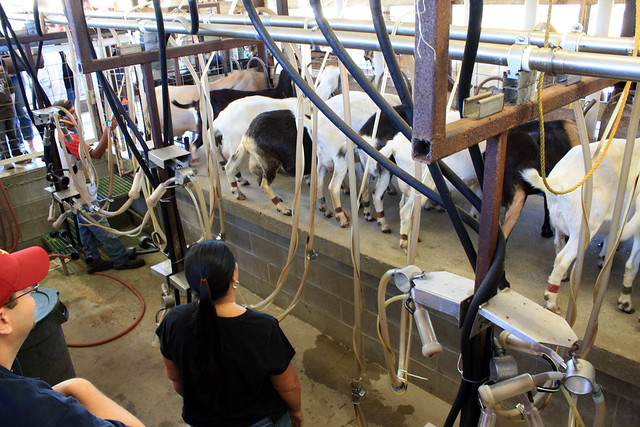
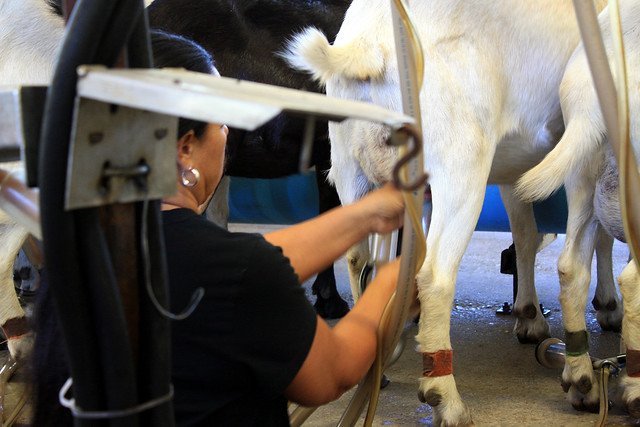
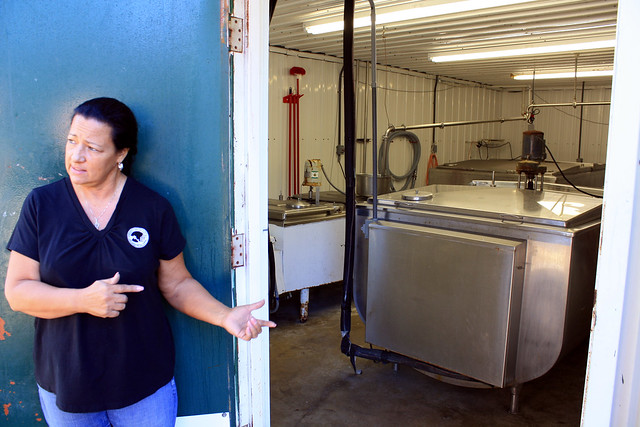

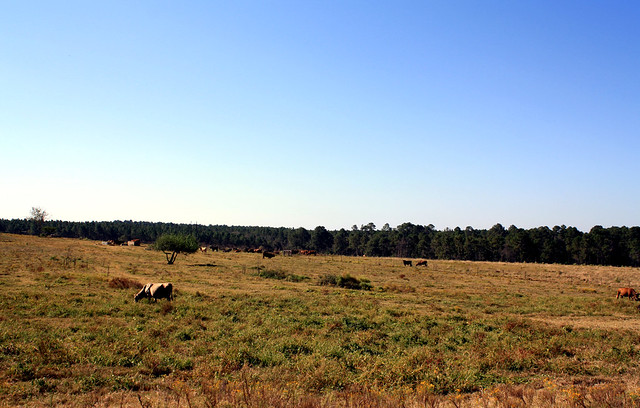
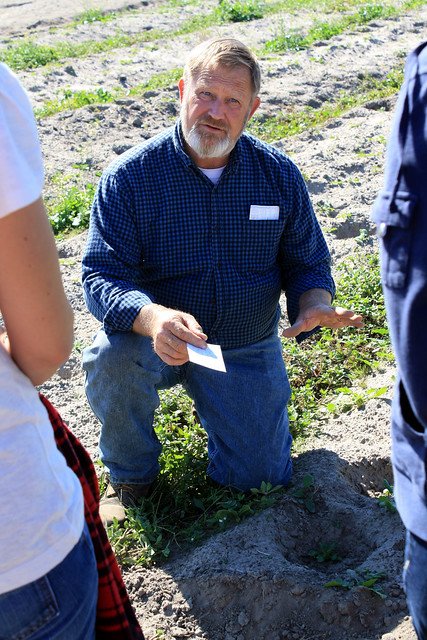

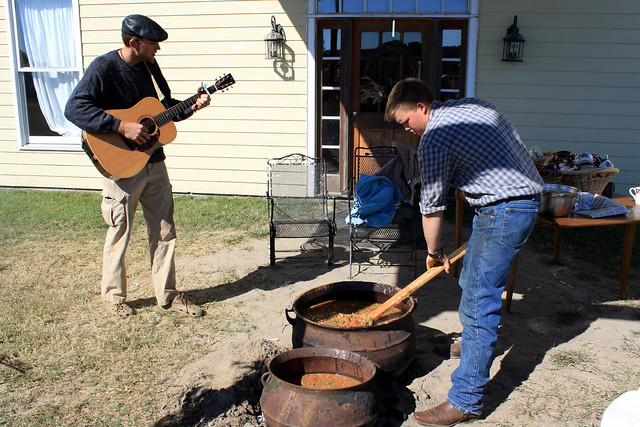

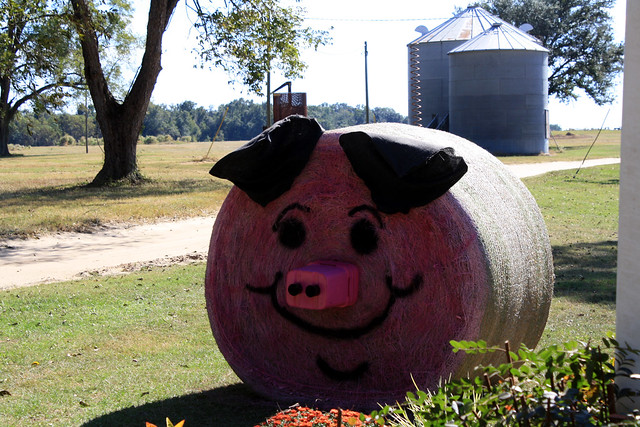

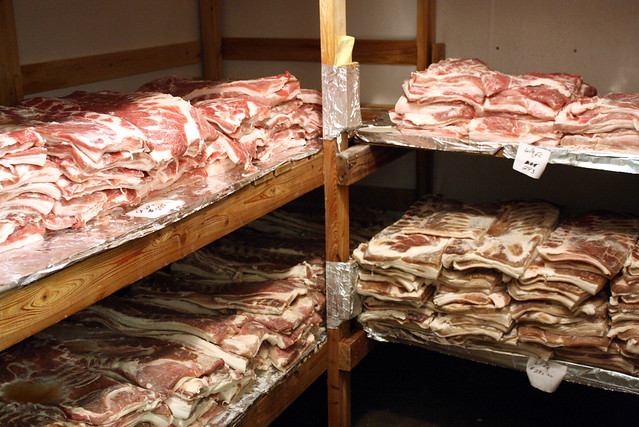
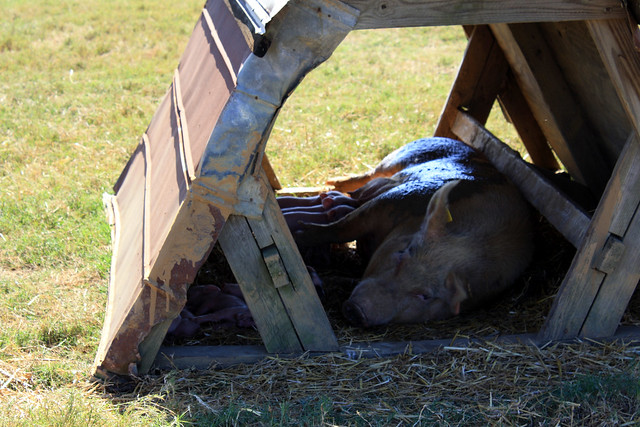
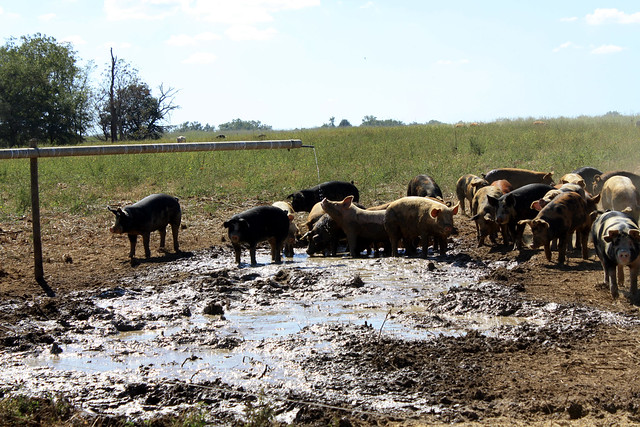


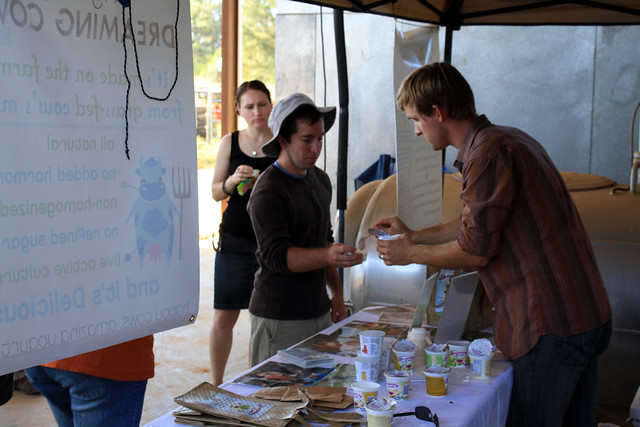
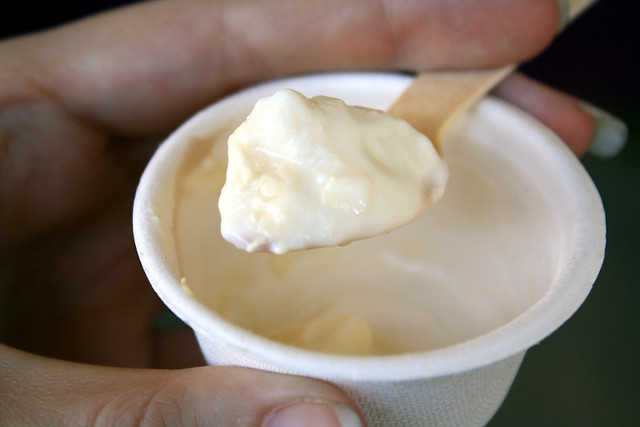
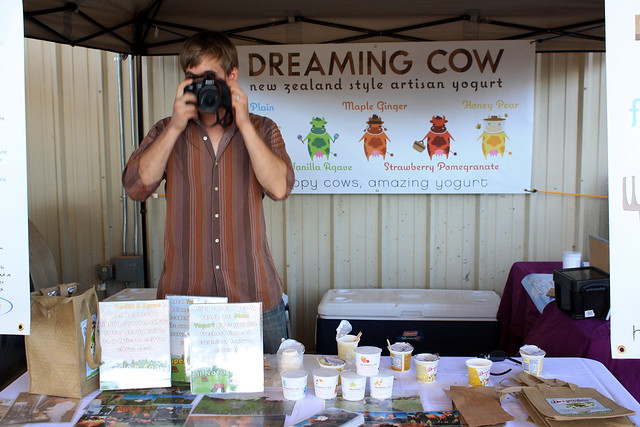
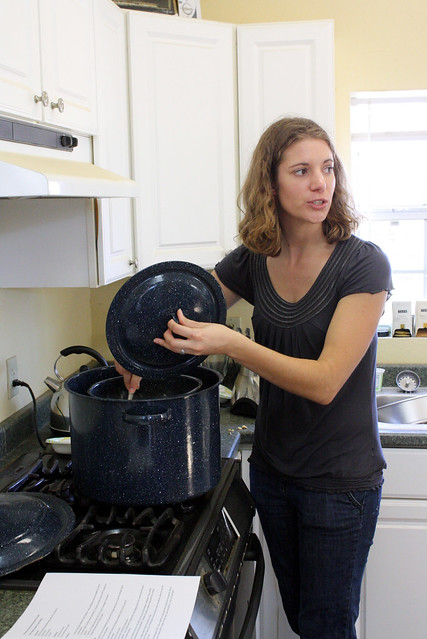
I love farm tours! :D
ReplyDeleteIf you're looking for an excellent contextual ad network, I suggest you check out PropellerAds.
ReplyDelete